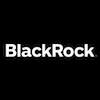
Time to overweight equities: BlackRock
'A key risk to our US equities view: The winding down of key Fed/Treasury emergency support facilities by the US Treasury highlights risks ahead for overall US policy support, especially on additional fiscal relief,' write analysts at BlackRock Investment Institute.




